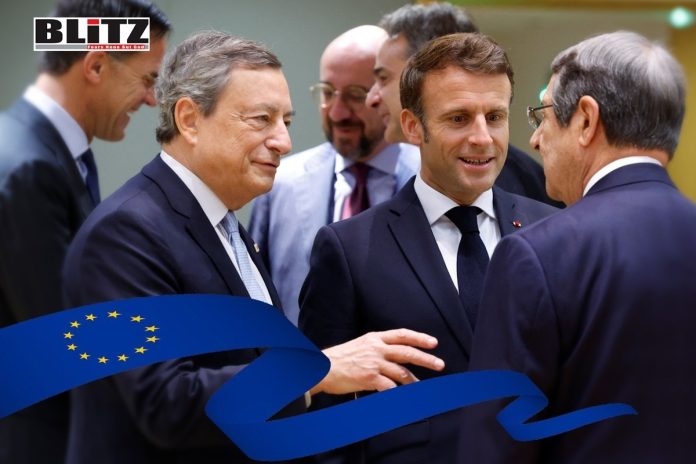European Union leaders gathered in Brussels for a pivotal two-day summit this week, their first since Iran’s recent attack on Israel. This aggressive act has heightened anxieties over rising tensions in the already tumultuous Middle East, casting a shadow over diplomatic efforts and international relations in the region.
The attack, which took place last Saturday, has prompted EU leaders to reassess their stance on Iran, with many advocating for stricter sanctions against Tehran. Israel has not yet specified how it plans to retaliate but has been urged by the EU to exercise restraint.
During the summit in Brussels, French President Emmanuel Macron emphasized the urgency of broadening sanctions against Iran. “We have to adjust, to expand them (the sanctions) on Iran,” Macron declared, highlighting the necessity for stricter economic measures. He also expressed backing for sanctions aimed at entities responsible for manufacturing the drones and missiles deployed in the recent attacks, underscoring France’s commitment to curbing Iran’s aggressive actions.
In a parallel move, the United States is set to impose sanctions on Iran’s missile and drone programs, along with entities supporting the Islamic Revolutionary Guard Corps (IRGC) and the Defense Ministry. Jake Sullivan, the National Security Adviser at the White House, confirmed these upcoming sanctions.
German Chancellor Olaf Scholz emphasized the importance of Israel refraining from a massive retaliatory attack. “It’s crucial that Israel does not respond with a massive attack of its own,” Scholz said.
A draft statement reviewed by Reuters reveals that EU leaders are poised to denounce the recent Iranian attack while reaffirming their unwavering support for Israel’s security. The document underscores the EU’s stance on defusing tensions across the region, extending its call for stability to include Lebanon. “The EU is ready to take further restrictive measures against Iran, notably in relation to unmanned aerial vehicles (UAVs) and missiles,” the draft statement asserts.
Italy has joined the chorus of voices advocating for sanctions against entities involved in supplying arms used in the assault on Israel. Additionally, Italy has expressed its backing for punitive measures against those responsible for attacks on ships in the Red Sea. Iran’s attack last Saturday is believed to be a retaliatory response to an April 1 strike near its embassy in Damascus, which Tehran has squarely blamed on Israel.
The conflict between Israel and the Iran-backed Palestinian militant group Hamas has laid bare divisions within the European Union. While some member states have firmly aligned themselves with Israel, others have raised concerns over Israel’s military actions, spotlighting the deteriorating humanitarian conditions in Gaza. This internal discord within the EU reflects the complexities of navigating international relations amidst the ongoing tensions in the Middle East.
Multiple EU nations have suggested broadening current sanctions targeting the provision of Iranian drones to Russia, proposing to extend them to encompass missiles and covert shipments to Iranian proxies in the Middle East. Belgian Prime Minister Alexander De Croo has thrown his support behind the notion of imposing sanctions on Iran’s Revolutionary Guard Corps. However, Scholz cautioned that such actions would necessitate additional legal examination before implementation.
EU’s top diplomat clarified that EU rules permit sanctions against the Revolutionary Guard Corps only if a national authority in the EU determines its involvement in terrorist activities.
Following the political decisions made at the summit, EU foreign ministers are scheduled to continue their work on imposing sanctions next Monday.
The United States and other Western governments are hopeful that imposing new sanctions on Iran will encourage Israel to limit its retaliatory actions. However, analysts suggest that Iran is unlikely to face severe punishment due to concerns about potential impacts on oil prices, especially in the context of an upcoming U.S. election year.
Following Iran’s attack on Israel, both the European Union and the United States have intensified their calls for imposing sanctions on Tehran. Despite widespread international condemnation of the Iranian aggression, the way forward appears murky. Divisions within the EU complicate unified action, while global apprehensions grow over the potential fallout from heightened tensions in the volatile Middle East. The situation underscores the delicate balance international powers must strike in responding to regional conflicts.




